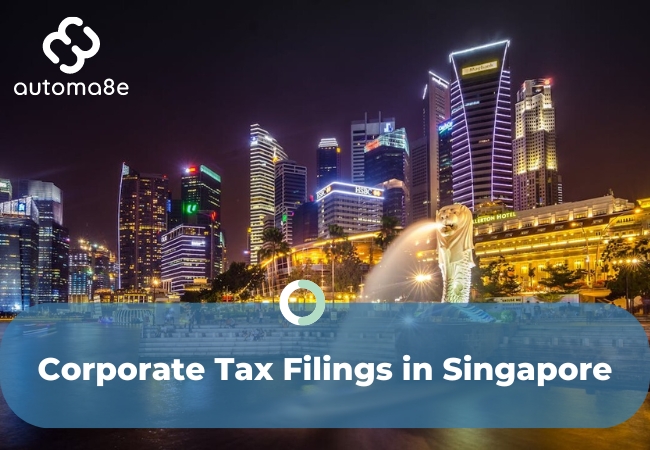Navigating corporate tax filings can be daunting, especially for businesses operating in Singapore’s dynamic business landscape. Understanding the various types of tax filings and their requirements is crucial for compliance and financial planning. In this guide, we’ll break down the different types of corporate tax filings in Singapore and provide clarity on their significance and timelines.
Types of Corporate Tax Filings:
1. Estimated Chargeable Income (ECI) Filing:
The Estimated Chargeable Income (ECI) filing is a mandatory requirement for corporations in Singapore. It must be submitted within three months after the end of the company’s financial year. While filing the ECI is compulsory for profitable companies, it is optional for those incurring losses. However, even for loss-making companies, filing the ECI is recommended. By doing so, businesses inform the Inland Revenue Authority of Singapore (IRAS) about their financial status, mitigating the risk of erroneous tax assessments. Failure to file ECI may result in IRAS assuming profits and issuing a notice of assessment, potentially leading to unnecessary tax payments.
2. Final Tax Return Filing (Form C/Form C-S):
The final tax return filing is another essential aspect of corporate tax compliance in Singapore. Companies are required to submit either Form C or Form C-S, depending on their eligibility. Form C is the standard detailed tax form, while Form C-S is a simplified version available for eligible companies. These forms are typically filed in the calendar year following the financial year-end. For example, if a company’s financial year ends in 2023, the tax forms would be filled in by 2024. The submission portal for these forms is usually updated by IRAS post-budget announcement, typically between May and July. Historically, Form C-S becomes accessible by May or June, with the filing deadline set for November 30th of the following year.
FAQs: Common Queries Answered:
Q1: Is filing ECI mandatory for companies in Singapore?
Yes, filing ECI is mandatory for companies that have earned profits. However, it is optional for companies incurring losses. Despite this, it’s recommended for all companies to file ECI, even when reporting losses, to avoid potential misunderstandings with IRAS.
Failure to file ECI may lead to IRAS assuming profits and issuing a notice of assessment, potentially resulting in unnecessary tax payments. It’s essential for companies to file ECI promptly to accurately communicate their financial status to IRAS.
Companies can determine whether they are eligible to use Form C-S by checking the eligibility criteria specified by IRAS. Generally, smaller companies meeting certain criteria may qualify to use the simplified Form C-S for their tax filings.
Conclusion:
Understanding the intricacies of corporate tax filings is vital for businesses operating in Singapore. By adhering to the requirements for ECI filing and final tax return submissions, companies can ensure compliance with IRAS regulations and avoid potential penalties. Filing ECI promptly, even for loss-making companies, is recommended to provide clarity to IRAS regarding the company’s financial status. As Singapore continues to maintain its reputation as a business-friendly destination, staying informed about tax obligations remains essential for businesses seeking long-term success in the Lion City.
